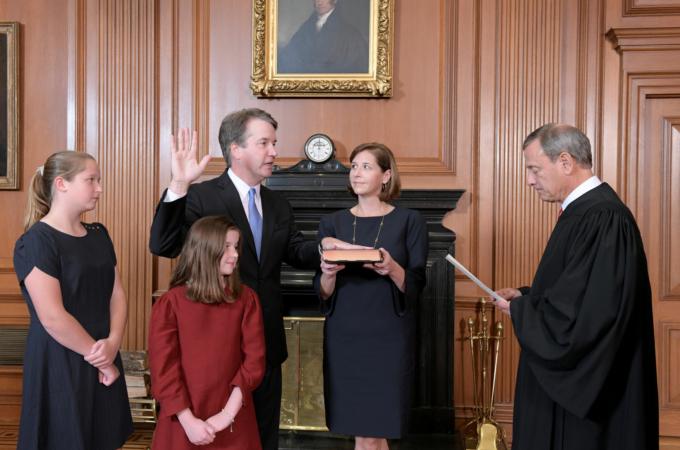Prolife Prospects on Roe's 46th Anniversary
When thousands of prolifers turn out for the annual March for Life in Washington on January 18, four days before the 46th anniversary of the Supreme Court decision legalizing abortion, many will march with a sense of victory in sight--a new ruling overturning or at least mitigating that earlier decision.
They may be right. But cooler heads would counsel adding a dash or two of uncertainty to the mix. For although victory for the prolife cause may now be a real possibility, so may something far short of that.
Consider how things stand at the Supreme Court. The confirmation of Justice Brett Kavanaugh was said to have signaled a new five-member prolife majority there. And perhaps it did. But Kavanaugh--along with Chief Justice John Roberts--lately joined the court's four-member liberal bloc in refusing to review lower court decisions allowing individual patients to challenge their states' exclusion of Planned Parenthood as a Medicaid provider.
Granted, rather than abortion, a somewhat convoluted question of legislative interpretation was the direct issue in these cases. But the media quickly, and correctly, hailed the result as a victory for Planned Parenthood, the country's largest abortion provider. Justice Clarence Thomas, joined by Justices Samuel Alito and Neil Gorsuch, may have been all too right when he said in dissent that his colleagues' refusal to look at the cases arose from "the fact that some of the respondents...are named 'Planned Parenthood.'"
All of which was a disturbing reminder that Chief Justice Roberts has a well honed respect for legal precedent while Justice Kavanaugh during his confirmation fight declared the 1973 abortion decision Roe v. Wade to be "settled law."
The Supreme Court will of course have other opportunities to declare its position on legal protection for the unborn. Among them is a case from Indiana, Box v. Planned Parenthood of Indiana and Kentucky, involving a state law which requires that the remains of aborted fetuses be buried or cremated instead of disposed of as medical waste. The law also bars abortions performed solely on account of race, sex, or fetal disability.
A three-judge panel of the 7th Circuit U.S. Court of Appeals split 2-1 in overturning the fetal remains provision and unanimously rejected the non-discrimination provision.
In asking the Supreme Court to consider the case, Indiana says the underlying premise of the fetal remains requirement is that "an aborted or miscarried fetus is nothing less than the remains of a partially gestated human and should be treated with the same dignity." Although that stops far short of saying the unborn are persons with a constitutionally protected right to life--something the court refused to do in Roe v. Wade--it would at least be a step in the right direction.
Eighteen states with laws similar to Indiana's have joined in asking the Supreme Court to consider the case.
Meanwhile uncertainty regarding how things stand with the Supreme Court shot sky high shortly before Christmas at the news that Justice Ruth Bader Ginsburg had two cancerous growths removed from her left lung. This was the third time Ginsburg, at 85 the court's senior liberal justice, has been treated for cancer.
If she can, Ginsburg clearly will hang onto her seat on the Supreme Court until there is a Democrat in the White House to name her successor. President Trump is committed to appointing only prolifers. So far he has named two--Gorsuch and Kavanaugh. Whether the Senate would confirm a third Trump pick is simply unknowable.
Talk about uncertainty!
- Russell Shaw is the author of more than twenty books. He is a consultor of the Pontifical Council for Social Communications and served as communications director for the U.S. Bishops.



















